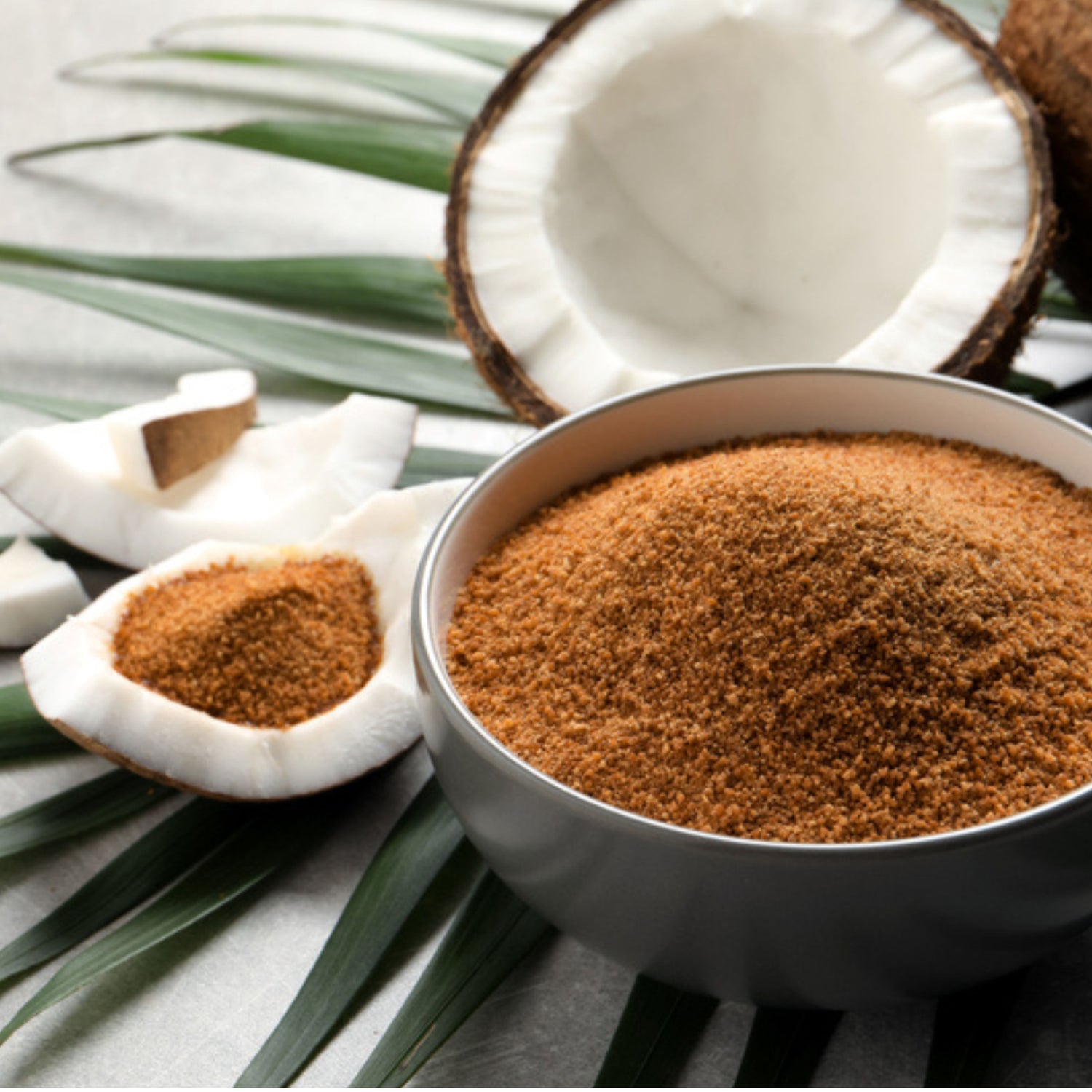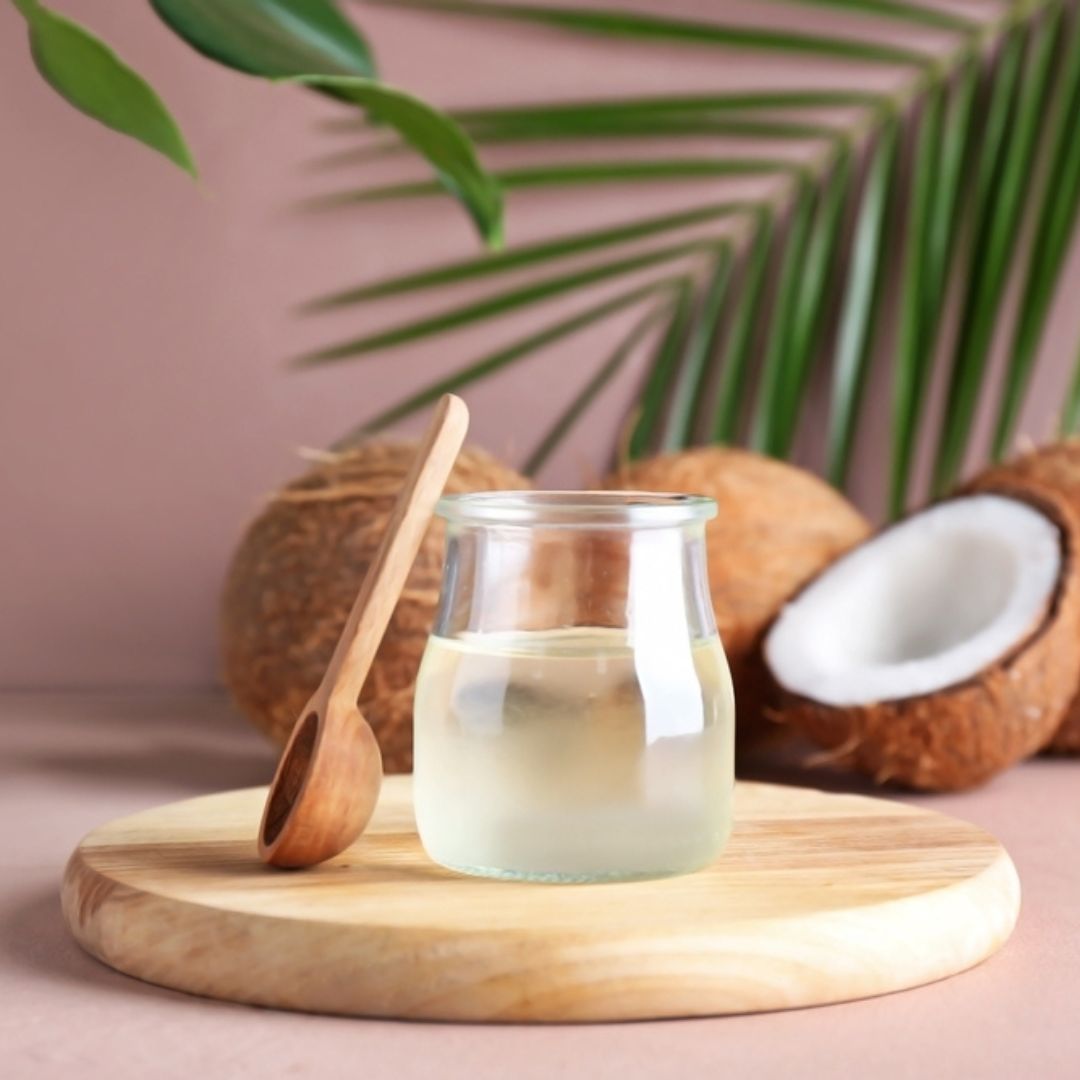Coconut sugar, often hailed as a healthier substitute for regular sugar, has been gaining popularity in recent years. Zama Organics flavoursome alternative can elevate all your creations posing as a more nutritious option. But what exactly is it, and why should you consider it over other sweeteners? Let's dive into the sweet world of coconut sugar and uncover everything you need to know.
What is Coconut Sugar?
Coconut sugar, also known as coconut palm sugar, is a natural sweetener derived from the sap of the flower buds of the coconut palm tree. Unlike table sugar, which undergoes extensive processing, coconut sugar is minimally processed, retaining many of its natural nutrients.
How is it beneficial?
Understanding the nutritional composition of coconut sugar can help you make informed choices about incorporating it into your diet.
Macronutrients
Coconut sugar contains about 15 calories per teaspoon and is composed mainly of carbohydrates, primarily sucrose, with small amounts of fructose and glucose. Unlike refined sugar, which is purely empty calories, coconut sugar provides some nutritional benefits due to its natural processing.Micronutrients
While coconut sugar should still be consumed in moderation, it is not just a source of sweetness but also a source of various nutrients. It contains small amounts of vitamins and minerals, including:- Iron: Essential for blood production.
- Zinc: Supports immune function.
- Calcium: Vital for bone health.
- Potassium: Helps regulate fluid balance and muscle contractions.
- Antioxidants: Reduces the risk of many diseases.
Comparison with Regular Sugar
Processing and Production
Regular sugar is made from either sugarcane or sugar beets and undergoes extensive refining processes to strip it of impurities and nutrients. On the other hand, coconut sugar is minimally processed and therefore helps retain more nutrients compared to regular sugar.Nutritional Differences
Regular sugar is essentially empty calories, offering no nutritional benefits besides pure carbohydrates. Coconut sugar, while still high in sugar content, provides small amounts of vitamins and minerals such as potassium, magnesium, zinc, iron, and certain B vitamins. This makes coconut sugar a slightly more nutritious option.Glycaemic Index
One of the significant advantages of coconut sugar over regular sugar is its lower glycemic index (GI). The GI measures how quickly foods raise blood sugar levels. Coconut sugar has a GI of around 35, while regular table sugar has a GI of about 60–65. This means that coconut sugar causes a slower rise in blood sugar, which can be beneficial for managing blood sugar levels.Taste and Usage
Regular sugar has a neutral sweetness without any particular flavour. Coconut sugar has a rich, caramel-like flavour that can enhance the taste of baked goods and beverages. It can be used as a 1:1 substitute for regular sugar in most recipes, making it easy to incorporate into your diet.
Cooking and Baking using Coconut Sugar
Popular Recipes with Coconut Sugar
- Coconut Sugar Caramel Sauce: Perfect for drizzling over desserts or fruits.
- Coconut Sugar Banana Bread: A healthier alternative to traditional banana bread.
- Coconut Sugar Chocolate Chip Cookies: A delicious twist on a classic favourite.
Zama’s Coconut Sugar Caramel Sauce
- Heat 1 cup of coconut sugar on medium heat, and stir it constantly until. It melts and turns golden brown.
- Whisk in ½ cup of coconut cream, 2 tbsp of coconut oil, 1 tsp of vanilla extract, and a pinch of salt.
- Cook the mixture for 2-3 minutes and stir it constantly until the sauce thickens.
- Allow the sauce to cool before serving.

Environmental Impact of Coconut Sugar
Sustainable Farming Practices
Coconut sugar production is generally more sustainable than that of regular sugar, as it requires less water and can grow in diverse climates, reducing the need for extensive irrigation. Our coconut sugar at Zama Organics undergoes minimal processing, which helps reduce its environmental footprint. This eco-friendly aspect makes it a preferred choice for those looking to reduce their environmental impact.How Coconut Sugar is Made
Farmers climb the coconut palm trees and tap the flower buds to collect the sap.The collected sap is then heated to evaporate the water content, leaving behind a thick syrup. This syrup is further boiled until it crystallizes into granules, resulting in coconut sugar.Coconut sugar is a versatile and healthier alternative to regular sugar, offering a lower glycemic index and more nutrients. Whether you're looking to manage your blood sugar levels, enjoy a more natural sweetener, or reduce your environmental impact, Zama Organics coconut sugar is worth considering. With its rich flavour and myriad uses in cooking and baking, it's a delightful addition to any kitchen.




